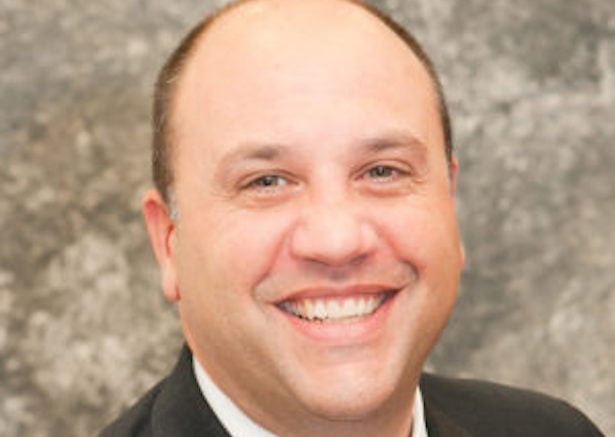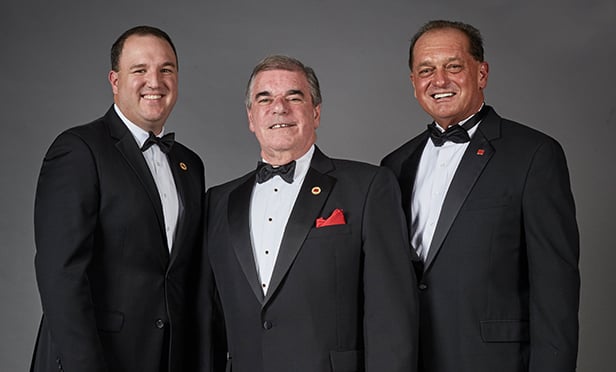LOS ANGELES-The economy continues its slow, uneven climb to complete stabilization, and as it does jobs keep trickling back, a good thing for practitioners of commercial real estate. Dr. Mark Dotzour, chief economist at the Real Estate Center of Texas A&M, is confident about the outlook for both.
Next month, Dotzour will appear at CCIM Institute's Thrive Conference (GlobeSt.com readers should use discount code THRIVE), where he will moderate the keynote session, “The Economy Decoded,” with top industry names such as Robert Bach of Newmark Grubb Knight Frank, Ken McCarthy of Cushman & Wakefield and GlobeSt.com blogger Jonathan Miller of Miller Ryan. In the meantime, Dotzour sat down with us for a bit of one-on-one pre-event decoding of his own.
GlobeSt.com: What's the landscape look like to you right now?
Dotzour: Prices for quality real estate are back to the 2007 peak or even above. The question is why and where will it go? I've also noticed a couple of slogans cropping back into vogue that I haven't heard for years. One is “Too much money chasing too many deals.” The other concerns musical chairs: “As long as the music keeps playing, we're good.”
GlobeSt.com: Well, let's step back just a bit. This isn't happening against the backdrop of a surging economy. What are you seeing?
Dotzour: The underlying economy addresses the question of whether we can fill up space. I don't think it's clear that the economic recovery has reached lift-off stage yet, though we're certainly in better shape than Europe. We're seeing job growth, but there are two other barometers that aren't reading the same way. One is the lack of retail sales by middle and lower income families. The second is the 10-year Treasury, which as of this morning is down to 2.3%. Neither of those numbers indicate that we have a strong upward trajectory in economic growth.
GlobeSt.com: In recent months, I've actually heard talk about a double dip. Possible?
Dotzour: I don't see that at all. For a double dip you have to have firms laying off in a big way, and all indicators say hiring will increase. What I do see is a bifurcation in the market and it ties in with the value of real estate. That is this: Federal Reserve policy has been designed all along to increase stock prices and wealth with the simply philosophy that if you're wealthy you're more likely to spend money. It has succeeded in making some Americans a lot wealthier, and those people are buying. But those Americans that don't own a house or stock portfolio are not wealthy and may in fact be worse off because their wages haven't kept up. This bifurcation is what is causing store sales in fancier places go up and sales at Dollar General and Target to go down.
GlobeSt.com: So are you crediting jobs with the recovery in real estate prices?
Dotzour: Buildings are filling, absorption is positive and there's an uptick in rental rates. We're also in a unique situation because the supply side hasn't been able to respond as quickly as normal. A lot of that has to do with risk-averse lenders who are hesitant to put money into new construction. I'm optimistic about the increase in rental income over the next 12 months because of all of that.
GlobeSt.com: Interest rates and cap rates are going to have to rise at some point, no?
Dotzour: The 10-year Treasury is signaling two things: First, there's too much money chasing deals. The bond market is inflated just like the stock market and people are looking for a place to put money. A few years ago it was the BRIC countries. That has completely collapsed. Nobody wants to go to Argentina, Venezuela or Russia now. Money is cooling in safe havens, Switzerland, Germany or the US. We're seeing an overpriced, overvalued bond market and that's what's keeping that Treasury so low. It could go lower given global uncertainty.
That said, there's not as much correlation between cap rates and the Treasury rates as a lot of people think. The last time we studied this, the correlation between multifamily and office cap rates and the 10-year Treasury was less than 50%. The expectation was that when the Fed tapers purchases, rates would go up and cap rates with it. I didn't agree with that at the time because it doesn't hold true with historic fact. The last time the 10-year Treasury was at 5%, multifamily cap rates were at 6, and when it dropped to 2.5, the cap rate was still at 6%.
GlobeSt.com: What is this industry's biggest misconception about economic issues?
Dotzour: A year ago, when people thought that as soon as the Federal Reserve stopped buying longer-term bonds interest rates were going to go up. I totally disagreed with that at the time. We heard so many complaints at the time about the US and the budget deficit and the tax structure and all of the other things and how we should all buy gold at $1900 an ounce. I thought all of that was false. Even if we take all of that as fact, we're still the prettiest pig in the trough.
GlobeSt.com: Spoken like a true Texan. So you and I are talking this time next year. What shape will we be in?
Dotzour: I like the metaphor of a golf cart with a governor on speed. Without the governor you could make the tires squeal. The US economy has been like a golf cart with a governor on it for the past six years because of the incompetence in DC—from both Congress and the president.
We will continue to have tepid economic job growth into 2015. And I don't anticipate interest rates going up very much. Our economy is not on steroids.
The good news for commercial real estate is that job growth is what fills up buildings. Also, based on the fact that there are no other investment alternatives on the map, I expect a lot of robust interest in purchasing real estate over the next 12 months—despite what happens to cap rates and prices per square foot.
© 2025 ALM Global, LLC, All Rights Reserved. Request academic re-use from www.copyright.com. All other uses, submit a request to [email protected]. For more information visit Asset & Logo Licensing.





